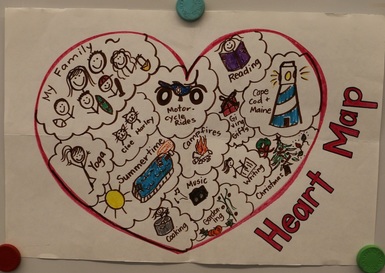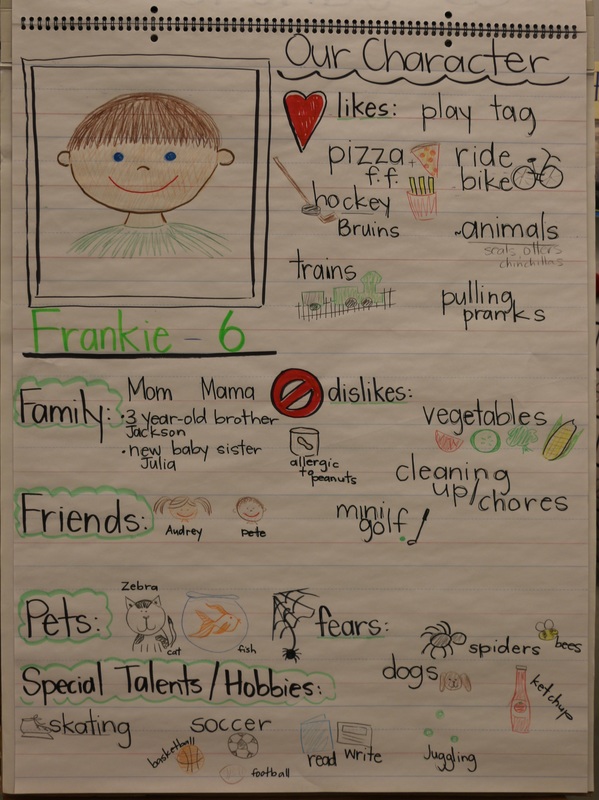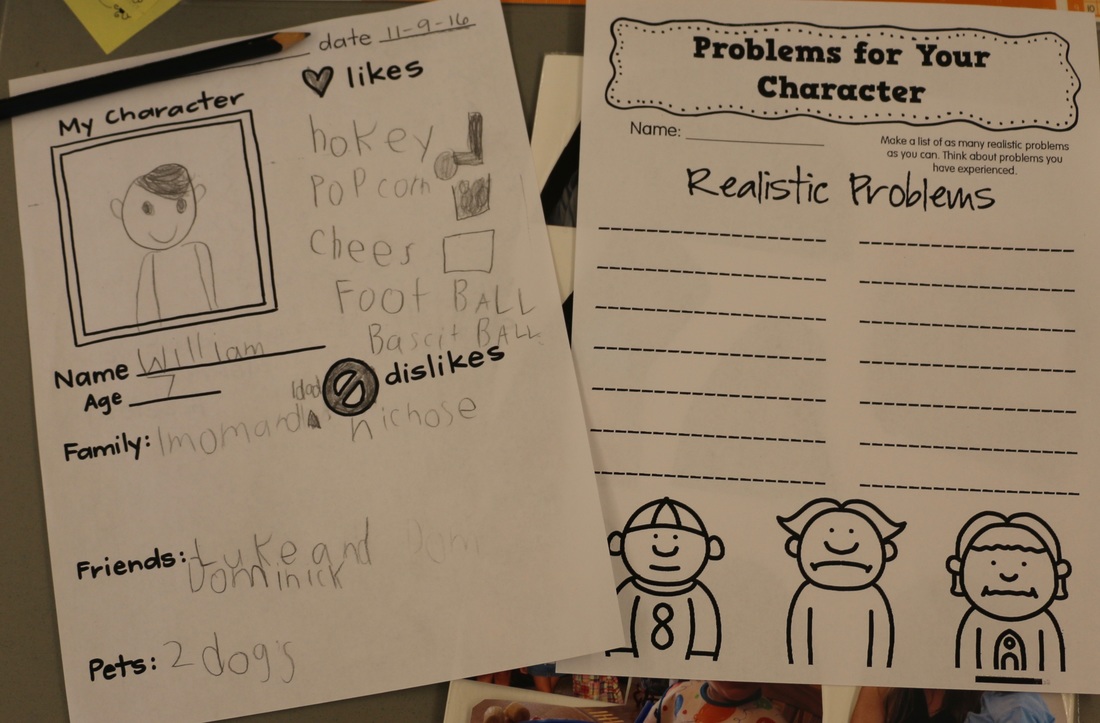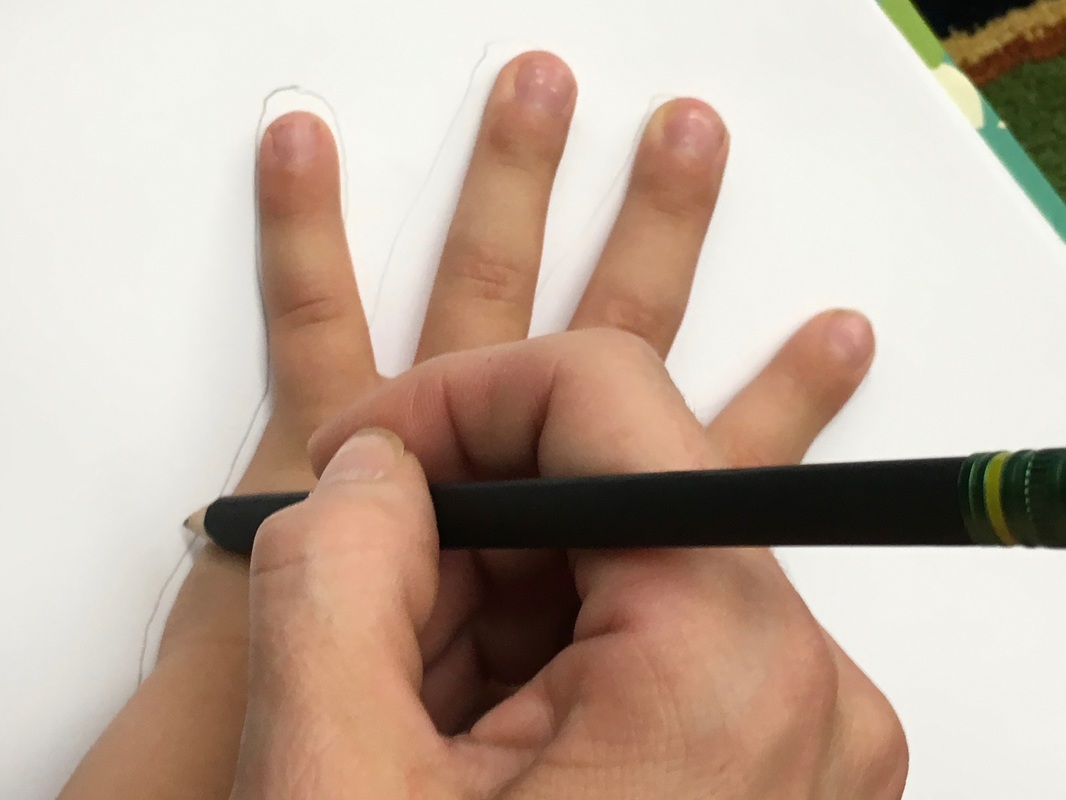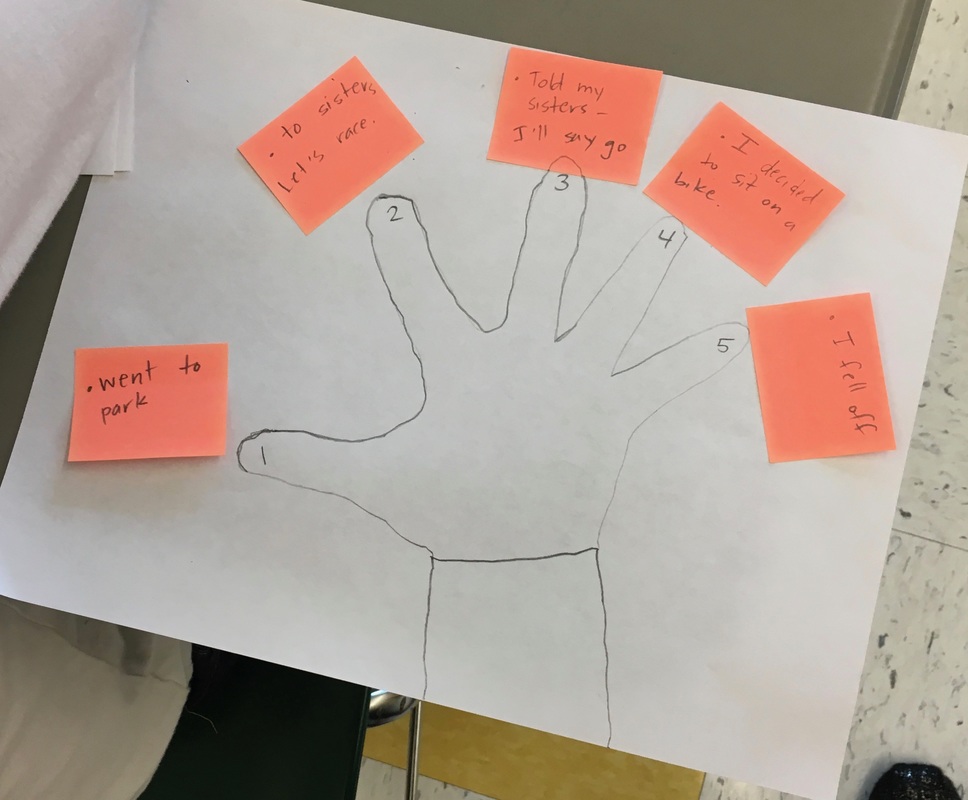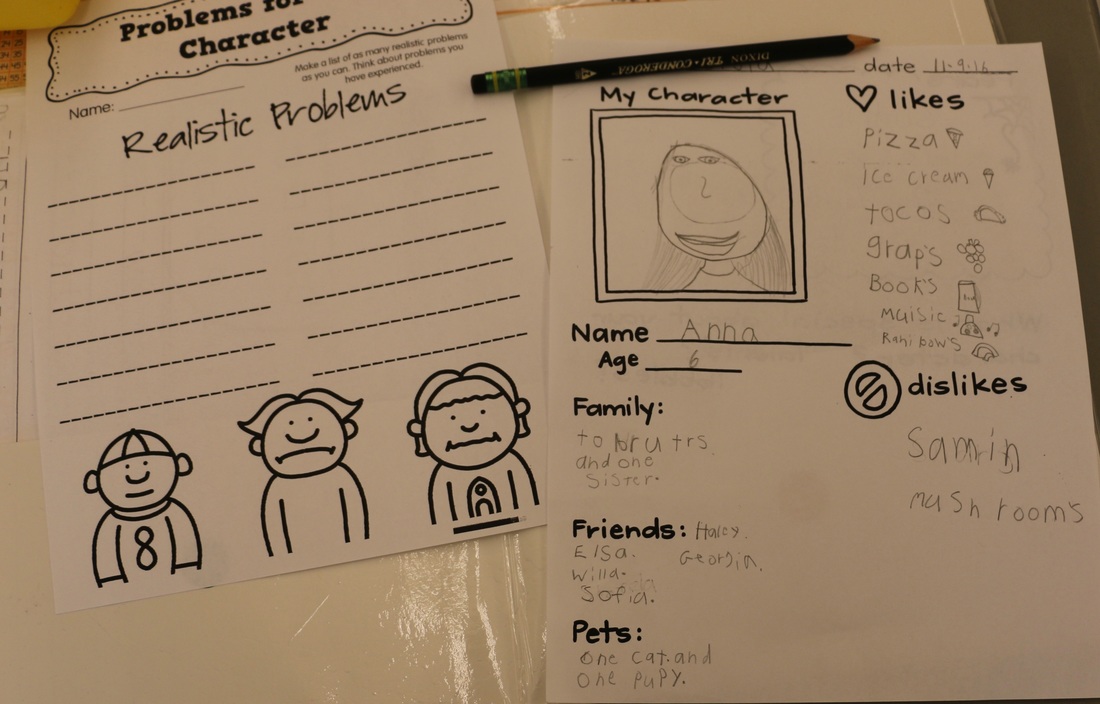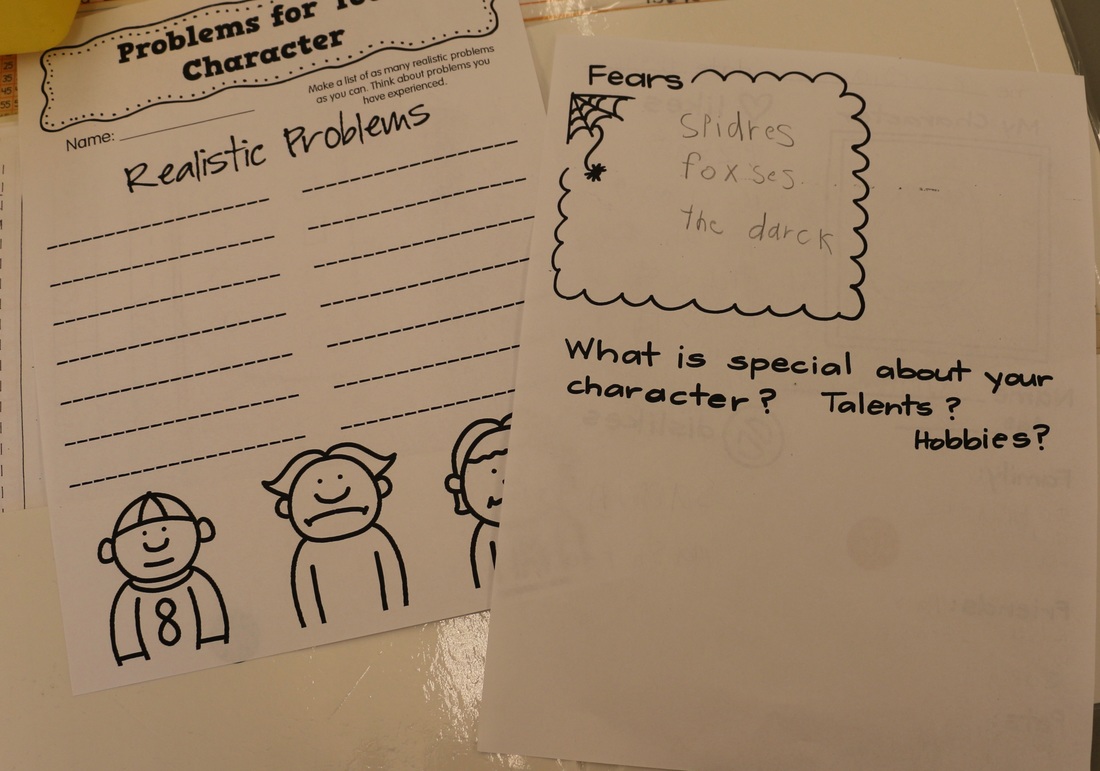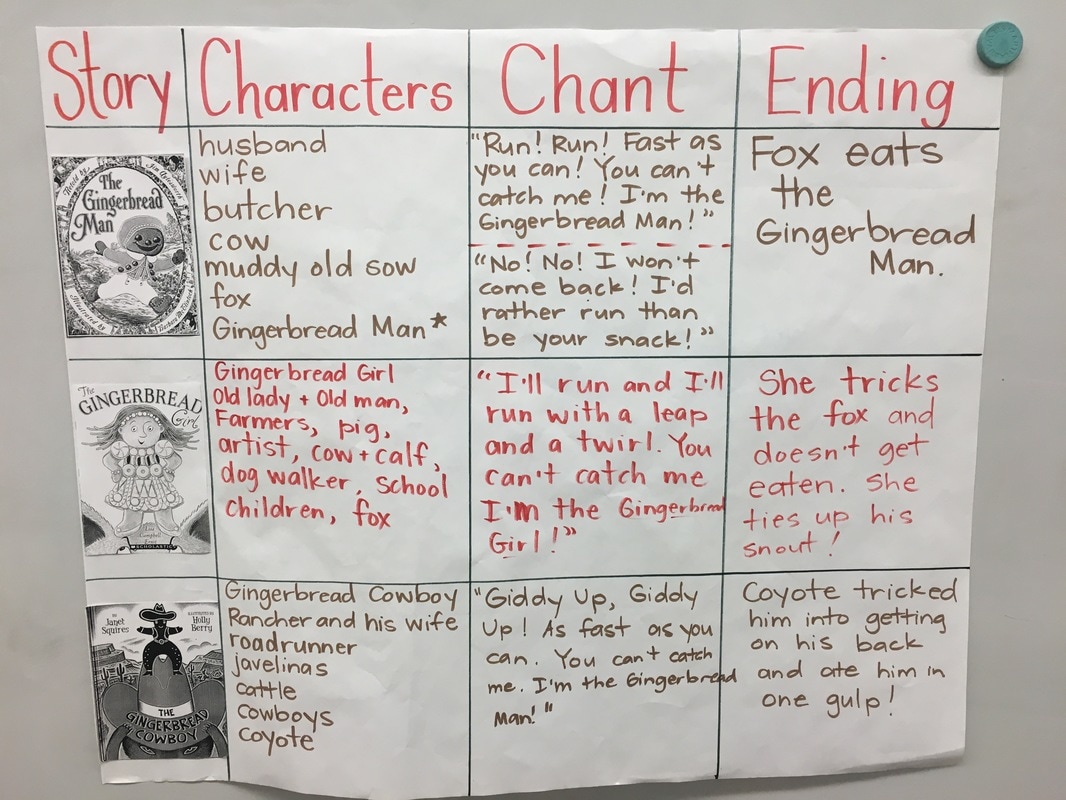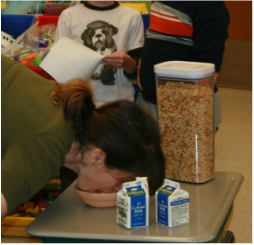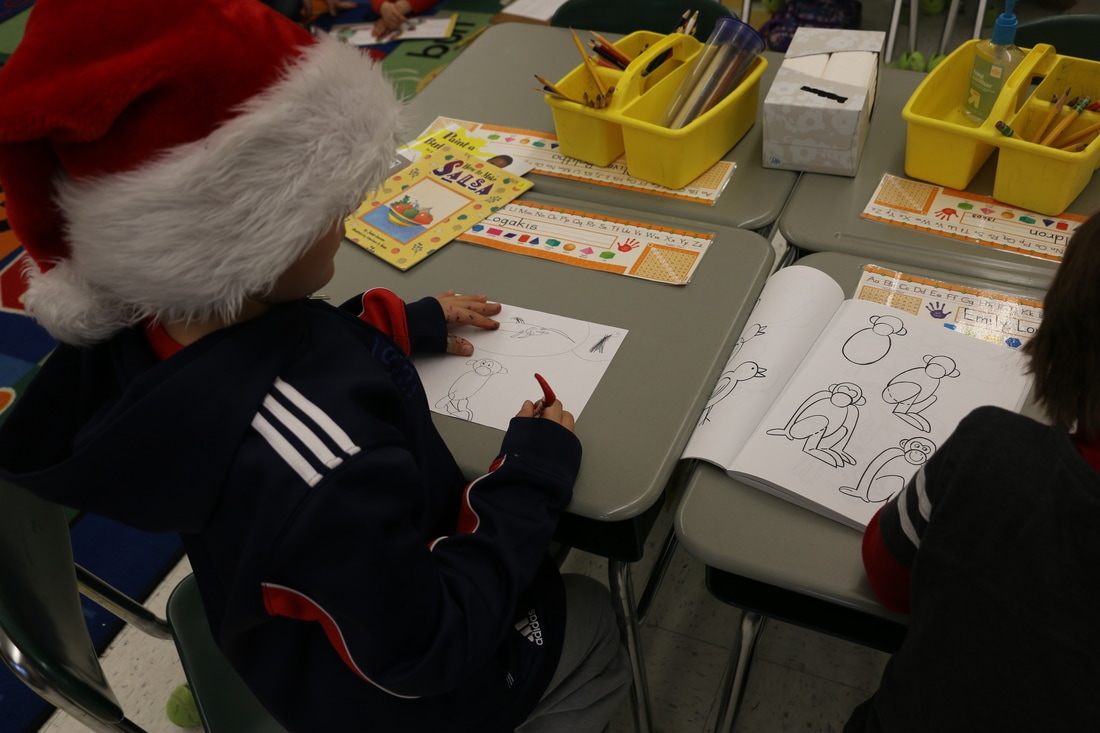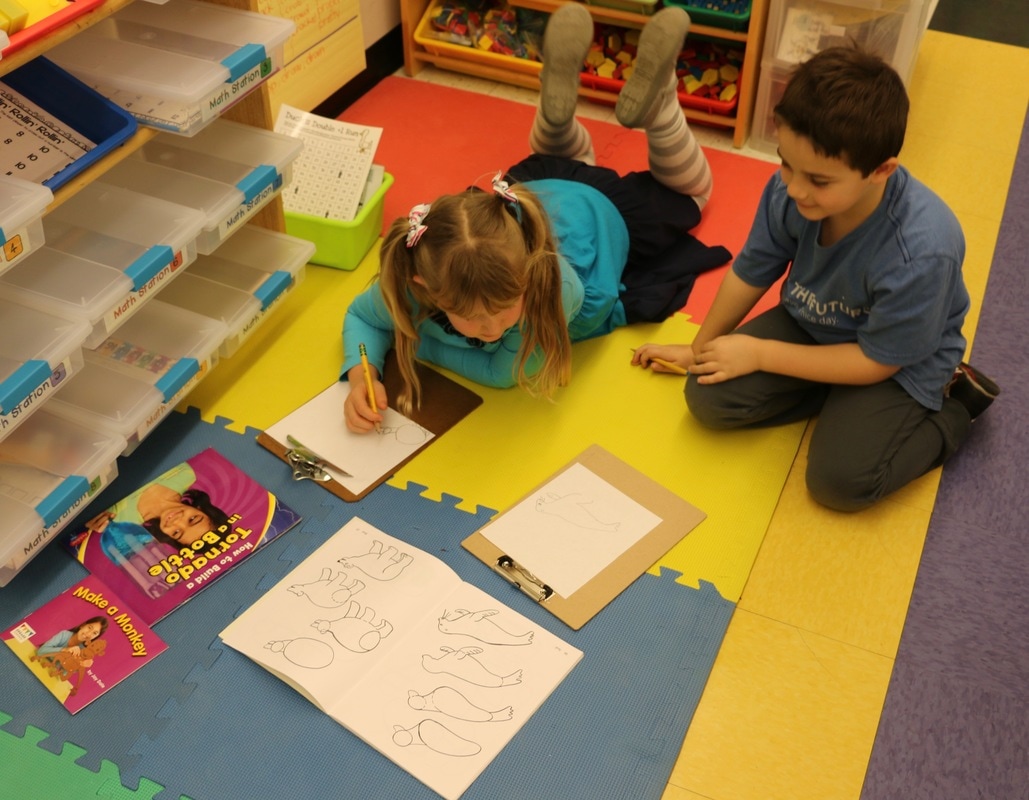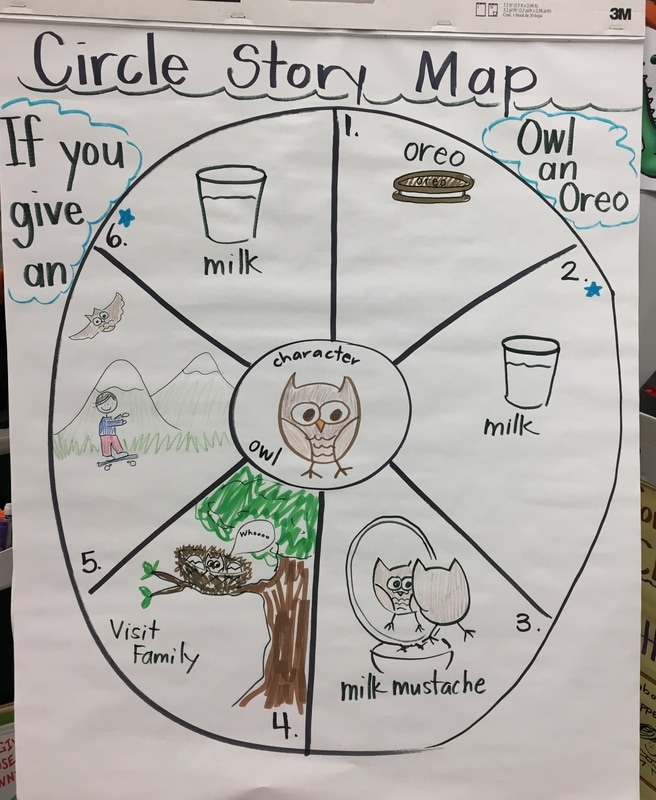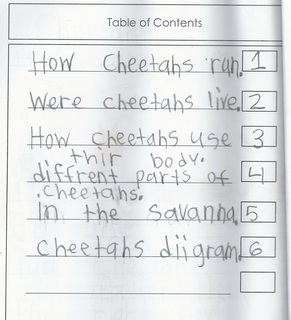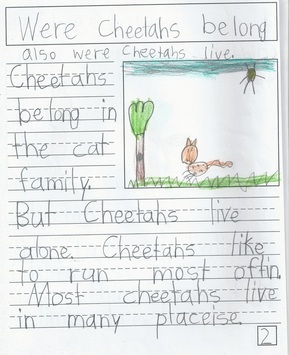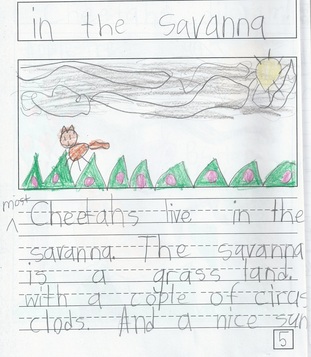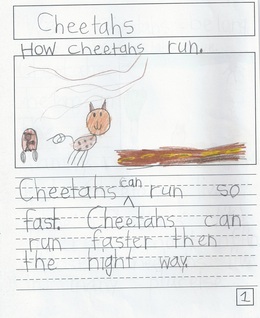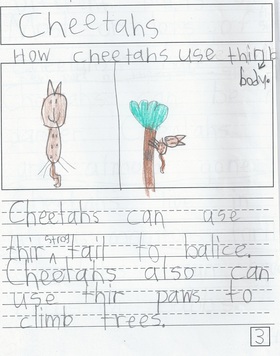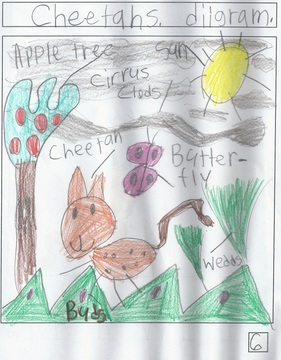Launching Writing Workshop with
|
Writing Workshop
Units of Study Unit 1 - Launching with Personal Narratives Unit 2 - Writing-for-Readers: Revision and Editing Unit 3 - Realistic Fiction Unit 4 - Procedural Writing: How-To Books Unit 5 - Opinion Writing: Persuasive Letters Unit 6 - Poetry Unit 7 - Authors as Mentors: Craftsmanship and Revision Unit 8 - Informational Books Personal Narratives
|
Gingerbread Stories
|
In this unit, young writers spend a week listening to, talking about, and reading many different versions of the familiar folktale.
As a class we write a version. This year we decided to write The Gingerbread Kangaroo. We map the story out, and I model the writing the story with the children's input. Then, they map out and write their own unique Gingerbread tales. |
Persuasive Letters and Opinion Writing
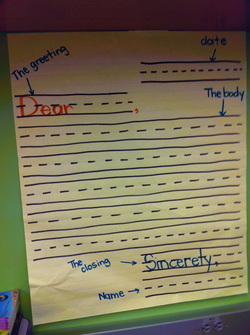
In this unit we want students to understand that they can initiate changes with an argument based on realistic criteria and supported with reasons that appeal to those needed. Everyday we are busy delivering our requests and reading responses. We have demonstrated how you butter someone up, and ways to use your closing and signature to persuade. We will of course write letters to you at home. Don't be surprised when your first grader starts to butter you up before they ask you for something.
Authors as Mentors
During the "Authors as Mentors" Unit of Study, we look closely at books in ways that inform our own writing. We study the craft of their writing and the strategies they use to write. In first grade, not only do we learn to write, but to "read like a writer". The children study the works of their favorite authors, in order to learn the craft of writing. What techniques to certain authors use to "grab the reader"? After reading multiple texts, the children notice specific craft moves of the author. What is their style of writing? What things do you notice repeat from one book to the next? Mo Willems and Laura Numeroff are two favorites.
Laura Numeroff, author of "If you give a Mouse a Cookie", "Moose a Muffin", "Pig a Pancake", etc.
We have termed the phrase, "Circle Stories" for Laura Numeroff books. They are great stories for noticing, "Cause and Effect". We notice how her books start off with "You" giving something to an animal, prompting the need for something else... the circle ensues until the character ends up needing the first thing you gave them.
Every year I model writing a "Circle Story" with the class.
This year we decided on: If you give an Owl and Oreo
Every year I model writing a "Circle Story" with the class.
This year we decided on: If you give an Owl and Oreo
Mo Willems, author of Elephant and Piggie books
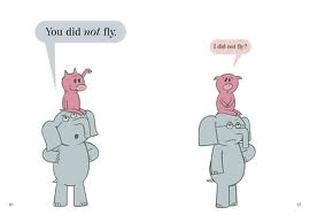
If you have never read an Elephant and Piggie book, you are missing out. Just ask your first grader...
We begin writing Elephant and Piggie Books by brainstorming titles. Elephant an Piggie are best friends. Piggie is fun-loving and free-spirited. Elephant is a cautious planner. Together, they are a modern day odd couple that fit together perfectly.
Informational Books - All About Books
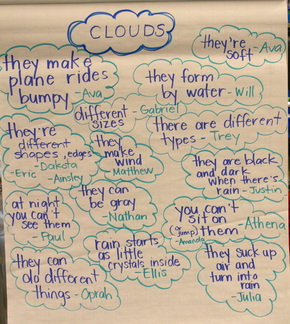
This is an important unit. In almost every subject area of the school curriculum, your child will be asked to write nonfiction. This unit is important for this reason, but most of all, it is important because your children are being given the chance to teach each other what they know.
Each book will have a table of contents, and children will be learning to organize their information into the appropriate chapters. They will also learn that each chapter has its own organizational structure. If a child chooses to write about the different kinds of something, the chapter will be sectioned into categories . . . If the child writes "how to do" something, the chapter resembles a how-to book. The All-About Books will be based on topics in which the child has personal expertise, but we use expertise in the loosest form. Remember, your child may feel he or she is an expert on "spies" or "Sponge Bob". These topics are perfect for them.
Here is an example of a first grader's "All About" book.
Each book will have a table of contents, and children will be learning to organize their information into the appropriate chapters. They will also learn that each chapter has its own organizational structure. If a child chooses to write about the different kinds of something, the chapter will be sectioned into categories . . . If the child writes "how to do" something, the chapter resembles a how-to book. The All-About Books will be based on topics in which the child has personal expertise, but we use expertise in the loosest form. Remember, your child may feel he or she is an expert on "spies" or "Sponge Bob". These topics are perfect for them.
Here is an example of a first grader's "All About" book.
